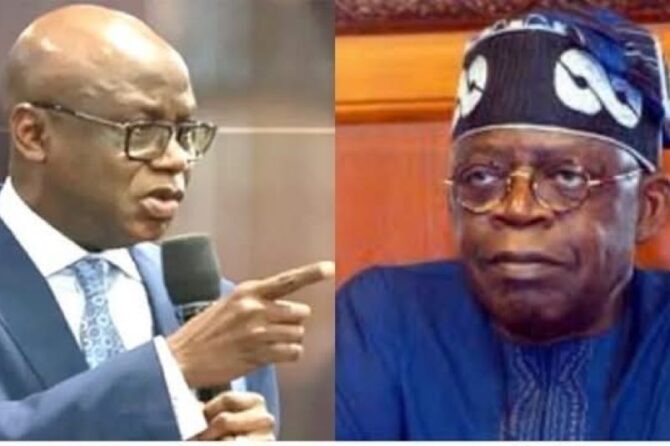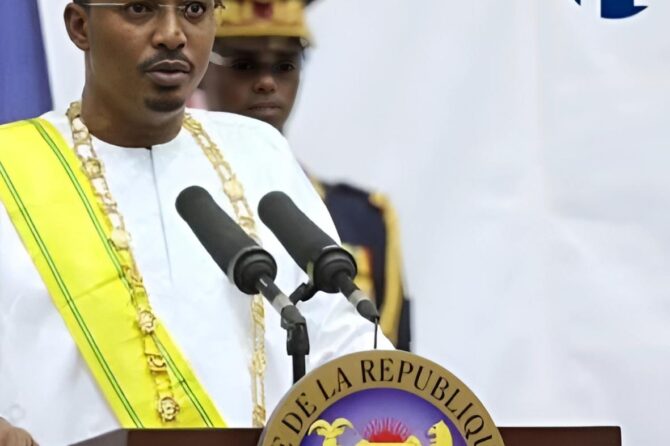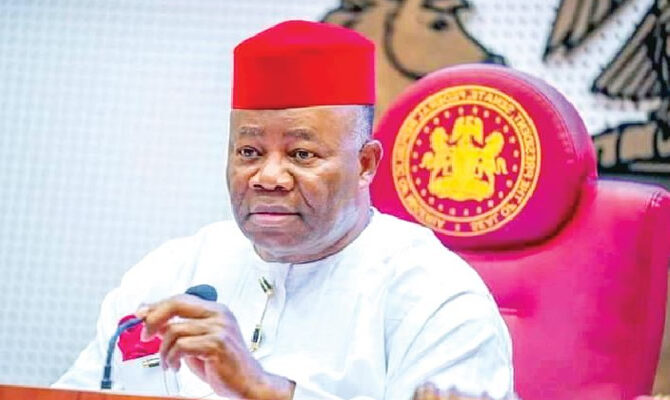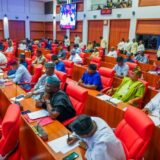Senate Passes All Tinubu’s Tax Reform Bills, Paving Way for Overhaul of Nigeria’s Tax System
Abuja, May 8, 2025 – The Nigerian Senate has completed the passage of all four major tax reform bills sponsored by President Bola Tinubu, marking a significant legislative milestone in the country’s efforts to modernize and streamline its tax system.
Final Two Bills Passed After Intensive Deliberations
On Thursday, the Senate passed the last two of the four bills-the Nigeria Tax Bill 2025 and the Joint Revenue Board (Establishment) Bill 2025-after a detailed clause-by-clause review and the removal of contentious provisions to secure consensus among lawmakers. This followed the passage of the Nigeria Revenue Service (Establishment) Bill and the Nigeria Tax Administration Bill during Wednesday’s plenary.
Senate President Godswill Akpabio, who presided over the sessions, commended senators for their commitment and highlighted the transformative potential of the reforms. “These four executive bills seek to transform and modernise the tax system in Nigeria,” Akpabio stated after the majority voice vote affirmed the bills’ passage.
Conference Committee to Harmonize Versions
With both the Senate and House of Representatives having now passed all four bills, a conference committee will be set up to harmonize any differences between the versions approved by each chamber. Once harmonized, the unified bills will be transmitted to President Tinubu for his assent.
Key Features and Expected Impact
The four bills-the Nigeria Revenue Service (Establishment) Bill, Nigeria Tax Administration Bill, Joint Revenue Board (Establishment) Bill, and Nigeria Tax Bill-are designed to:
- Modernize and streamline tax collection and administration
- Align Nigeria’s tax practices with international standards
- Improve revenue generation and economic development
- Establish clearer roles for tax authorities and dispute resolution mechanisms
Senator Sani Musa, Chairman of the Ad Hoc Committee on Tax Reform Bills, emphasized that the reforms were shaped by extensive consultations, including public hearings and input from 76 organizations and stakeholders. “The objective of these bills is to streamline our tax administration, to make it possible that our taxes and the operations meet international best practices,” Musa noted.
Additional Insights: Background and Detailed Provisions
President Bola Tinubu transmitted these four comprehensive tax reform bills to the National Assembly on October 3, 2024, aiming to overhaul Nigeria’s tax system and lay a strong fiscal foundation for sustainable growth. These bills are products of extensive consultations led by the Presidential Committee on Fiscal Policy and Tax Reforms chaired by Taiwo Oyedele.
The reforms seek to simplify and unify Nigeria’s complex and fragmented tax framework, reduce the tax burden on individuals and businesses, and promote compliance and revenue generation. Key highlights include:
- Personal Income Tax: Minimum wage earners and employees of start-ups and technology-driven firms are exempted from income tax, providing relief and incentives for youths and low-income earners. The tax rate is progressive, with the highest rate of 25% applying only to annual incomes above ₦50 million.
- Corporate Tax: Small businesses with annual turnover below ₦25 million are exempt from profit tax. The corporate tax rate for larger companies is gradually reduced from 30% to 27.5% in 2025 and 25% from 2026, encouraging business growth.
- Tax Administration: Financial institutions must report individuals with monthly cumulative transactions exceeding ₦25 million to tax authorities, broadening the tax net to include high-income earners.
- Value Added Tax (VAT): The Senate retained the VAT rate at 7.5%, rejecting proposals to increase it to 10%, while introducing input VAT claims on fixed assets and administrative expenses.
- Revenue Sharing and Development Levies: The bills restructure revenue distribution among federal, state, and local governments and introduce a 4% development levy to fund key agencies like TETFUND and NITDA.
The Senate completed the passage of all four bills by May 8, 2025, following earlier approval by the House of Representatives. A conference committee will now harmonize the versions before transmission to President Tinubu for assent.
Once enacted, these reforms are expected to modernize Nigeria’s tax system, increase government revenue, improve compliance, and support economic development under the Renewed Hope Nigeria First initiative. The overhaul also aims to align Nigeria’s tax practices with international standards, enhance taxpayer protections, and simplify dispute resolution.
In summary, President Tinubu’s tax reform bills represent a landmark effort to transform Nigeria’s fiscal landscape, balancing incentives for businesses and individuals with measures to broaden the tax base and strengthen administration.
Next Steps
The passage of these bills is widely regarded as a major step toward overhauling Nigeria’s tax system, with the potential to enhance governance, boost investor confidence, and support sustainable economic growth. Final harmonization and presidential assent are expected in the coming weeks.

















